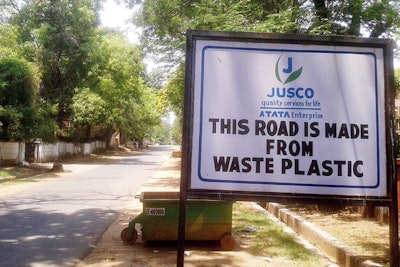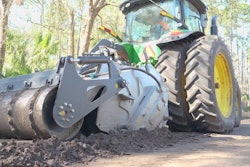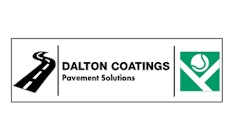
To help address the global issue of plastic-contaminated oceans, Dow Packaging and Specialty Plastics (P&SP), a business unit of The Dow Chemical Co., is partnering with Indonesian associations and the Indonesian government to engineer a means to incorporate plastic waste that washes up on Indonesian beaches into asphalt pavement mixtures.
Aimed at helping the Indonesian government reach its goal of reducing plastics waste in the ocean by 70 percent by 2025, ADUPI will continue to provide the necessary plastics waste material, and together with Dow’s technology expertise, will work with various stakeholders to turn that waste into sustainable roads.
Potent Plastic
At the recent United Nations Environment Summit, plastics waste contamination is now recognized as a planetary issue with much of the world’s marine ecology under threat. According to research, plastics waste in Indonesia is estimated to reach 9.52 million tons by 2019, or 14 percent of the country’s total waste.
“Companies do not make plastics with the intent of it ending up in the ocean, and we acknowledge the strong role the industry must play in order to help eliminate ocean plastic waste by 2035," Bambang Candra, Asia Pacific Commercial vice president at Dow Packaging and Specialty Plastics says. “We are extremely pleased with the success of this project and what it promises. The technology behind these new plastic roads has proven simple enough for wide scale application in Indonesia’s transport infrastructure. We are confident it will help manage the sheer volume of plastics waste the country produces.”
The first plastic road trial was completed in Depok city, West Java, Indonesia, in Q3 of 2017. It saw 3.5 metric tons of plastics waste material mixed into asphalt to create a 1.8 kilometer long proof of concept, which covered a total area of 9,781 square meters. The result of the two-month long project was a highly resistant plastics waste road that was highly durable . While still undergoing further testing at the PUSJATAN (National Centre of Road and Bridge Construction), the project has been identified by Indonesia’s Coordinating Ministry for Maritime Affairs as one of national importance.
The success of this project furthers Dow’s 2025 Sustainability Goals to advance a circular economy by delivering solutions to tackle environmental issues, raise awareness on recycling and reuse of plastics and create a sustainable business environment for plastics producers and consumers alike.
According to research, plastics waste in Indonesia is estimated to reach 9.52 million tons by 2019. This amount of waste could be used to pave an equivalent of over 118,000 miles of new roads.



![Lee Boy Facility 2025 17 Use[16]](https://img.forconstructionpros.com/mindful/acbm/workspaces/default/uploads/2025/09/leeboy-facility-2025-17-use16.AbONDzEzbV.jpg?auto=format%2Ccompress&fit=crop&h=100&q=70&w=100)







![Lee Boy Facility 2025 17 Use[16]](https://img.forconstructionpros.com/mindful/acbm/workspaces/default/uploads/2025/09/leeboy-facility-2025-17-use16.AbONDzEzbV.jpg?ar=16%3A9&auto=format%2Ccompress&fit=crop&h=135&q=70&w=240)








